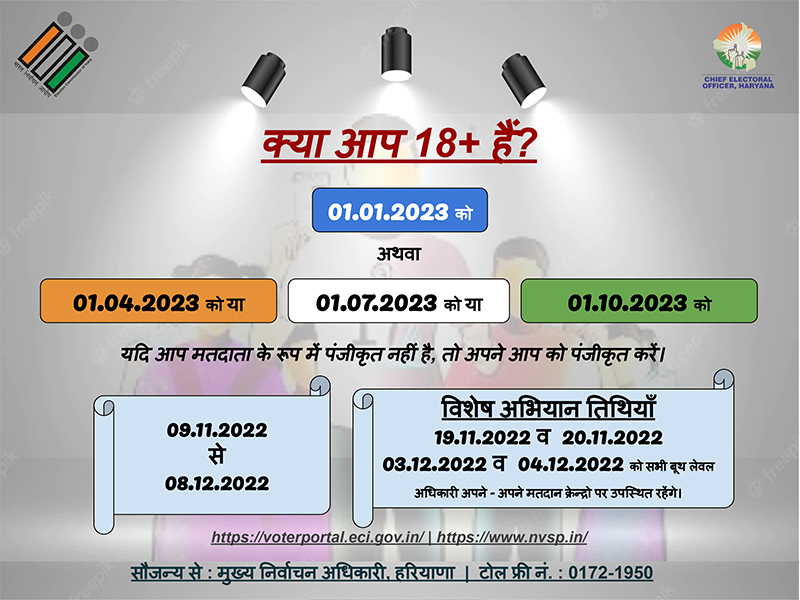M.Tech. Electronics & Communication Engg. (Embedded System and VLSI)
Electronics and Communication Engineering offers an M.Tech program in Electronics and Communication Engineering with a specialization in VLSI and Embedded Systems in association with Truechip. The program is designed to provide students with in-depth knowledge and skills in the field of VLSI and Embedded Systems.
| Duration | 2 Yrs |
| Intake | 18 |
| Minimum Eligibility Criteria | Pass in B.Tech Electronics and Communication with 50% or more marks in aggregate. |
| Criteria for Preparation of Merit list | Merit preparation/ shortlisting of candidates shall be on the basis of score in MRNAT/ GATE/B. Tech Qualifying Examination. |
The program curriculum includes courses such as Advanced Digital Design, Low-Power VLSI Design, System-on-Chip Design, and Embedded Systems Design. Students also have the opportunity to participate in projects and internships to gain practical experience in the field.
Truechip, the program’s industry partner, provides students with access to industry-standard tools and technologies, training, and industry-expert interaction. This collaboration enhances students’ employability and equips them with the necessary skills to meet industry demands.
The M.Tech program in Electronics and Communication Engineering with a specialization in VLSI and Embedded Systems in association with Truechip at MRU is an excellent choice for students seeking to advance their careers in this field.
Key Features
- Specialization in Embedded System and VLSI
- specialized courses beyond the undergraduate level, focusing on advanced concepts and emerging technologies in electronics and communication
- elective courses allowing students to align their studies to areas such as VLSI Design, Embedded Systems, Signal Processing, Wireless Communication, Optical Communication, etc.
- emphasizes research, encouraging students to engage in thesis projects, research papers
- can also work as Research Assistants, assisting faculty members or senior researchers in various research projects within the department
- Serving as a TRA offers valuable professional development opportunities for M.Tech graduates
- Opportunities to develop soft skills such as communication, teamwork, leadership, and project management through seminars, workshops, and group projects
PROGRAM EDUCATIONAL OBJECTIVES (PEO)
PEO1. To impart in-depth knowledge and skills to students so as to enable them solve issues in real world
Communication, VLSI and Embedded sectors and provide feasible and viable solutions.
PEO2. To help them learn to effectively communicate their ideas and research in oral and written form and to
enable them to adapt to the evolving technical challenges and changing career opportunities in their
specialized domains.
PEO3. To inculcate professional and ethical attitude, team spirit and leadership qualities in Students and to
make them aware of their social responsibilities.
PROGRAM OUTCOMES (POs)
Engineering Graduates will be able to:
PO1. Critical Thinking: Take informed actions after identifying the assumptions that frame our thinking and actions, checking out the degree to which these assumptions are accurate and valid, and looking at our ideas and decisions (intellectual, organizational, and personal) from different perspectives.
PO2. Effective Communication: Speak, read, write and listen clearly in person and through electronic media in English and in one Indian language, and make meaning of the world by connecting people, ideas, books, media and technology.
PO3. Social Interaction: Elicit views of others, mediate disagreements and help reach conclusions in group settings.
PO4. Effective Citizenship: Demonstrate empathetic social concern and equity centered national development, and the ability to act with an informed awareness of issues and participate in civic life through volunteering.
PO5. Ethics: Recognize different value systems including your own, understand the moral dimensions of your decisions, and accept responsibility for them.
PO6. Environment and Sustainability: Understand the issues of environmental contexts and sustainable development.
PO7. Self-directed and Life-long Learning: Acquire the ability to engage in independent and life- long learning in the broadest context socio-technological changes.
Program Specific Outcomes (PSOs)
PSO1. Embed hardware and Software expertise in different domains of Electronics and Communication Engineering through specialized Courses and projects based on latest technological tools to cater to the emerging industrial requirements.
PSO2: Develop research oriented approach amalgamated with professional ethics for solving real life problems and serving the societal needs in terms of health, safety and environment.
The consistency of PEOs with Mission of the Department of Electronics and Communication is established through the correlation matrix given below-
| Program Educational Objectives (PEOs) | M1 | M2 | M3 | M4 | M5 |
| PEO1. To impart in-depth knowledge and skills to students so as to enable them solve issues in real world Communication, VLSI and Embedded sectors and provide feasible and viable solutions. |
3 | 1 | 1 | 2 | 1 |
| PEO2. To help them learn to effectively communicate their ideas and research in oral and written form and to enable them to adapt to the evolving technical challenges and changing career opportunities in their specialized domains. |
1 | 2 | 3 | 3 | 1 |
| PEO3. To inculcate professional and ethical attitude, team spirit and leadership qualities in Students and to make them aware of their social responsibilities |
1 | 3 | 1 | 1 | 3 |



